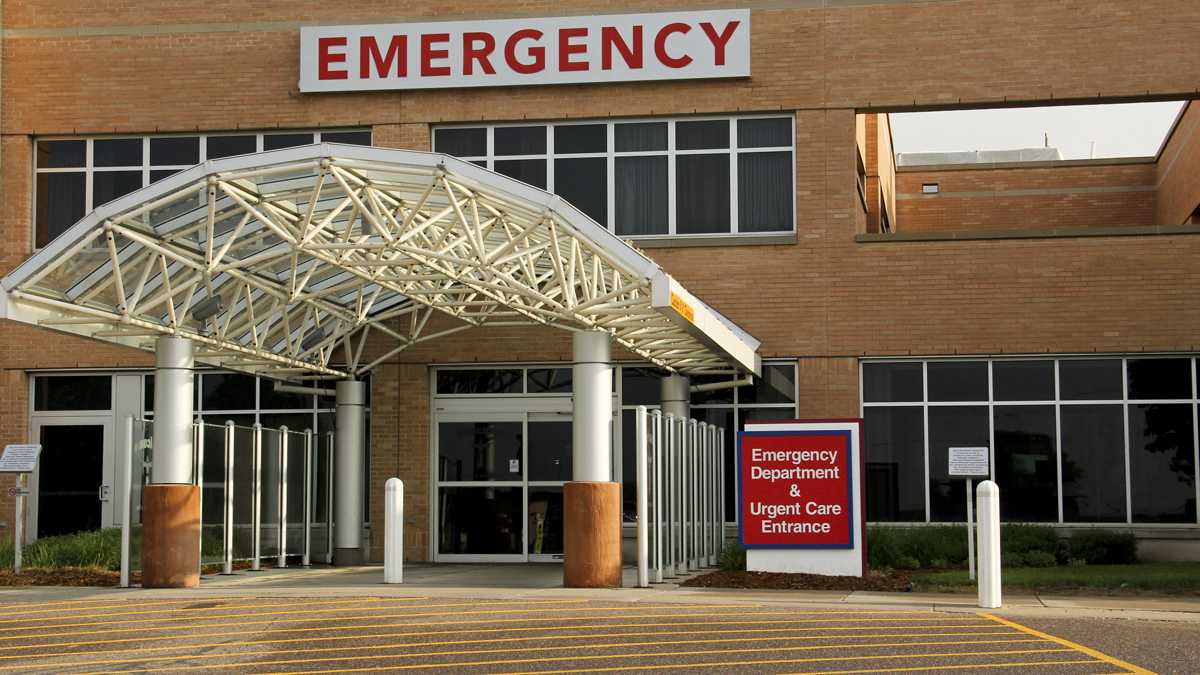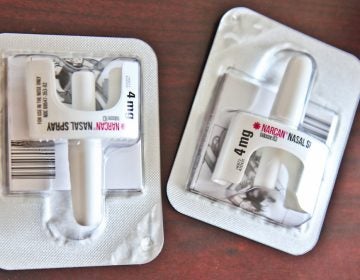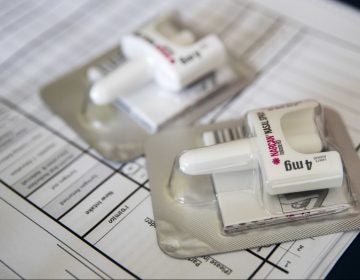Half of OD deaths in Delaware study happened three months after an ER visit
A new study of Delaware overdose deaths in 2018 found 52% of people who died had visited the emergency room within three months of their death.

(ShutterStock)
More than half of Delaware overdose deaths happen within three months of an emergency room visit.
That’s according to a new report from the Delaware Drug Overdose Fatality Review Commission, which was created to better understand the state’s overdose death epidemic.
Delaware has seen a rapid rise in the number of people dying from overdoses over the past few years. In 2018, 400 people died from overdoses, an increase from 2017’s 345 deaths.
This week, the commission issued a report on its study of 56 overdose deaths in the last six months of last year.
“The findings of our investigations represent real opportunities for Delaware to educate the public and to prevent further tragedies through early intervention and a stronger continuum of treatment and care,” said Dr. Rebecca Walker, who chairs the commission.
The goal, Walker said, is “to support the fight against the opioid epidemic with evidence-based, data-driven recommendations.”
According to the report, 79% of overdose victims in Delaware died in private homes. Fifty-two percent of overdose deaths occurred within three months of a visit to an emergency room. Most exhibited signs of substance abuse disorder during those ER visits.
Another person was present at the time of the overdose in 79% of the deaths as well, but those witnesses were unable to reverse the overdose because naloxone was not available in the home 93% of the time.
The state has taken several steps to increase access to naloxone, including handing out the medication at a recent 5K fundraiser for addiction treatment. In May, Division of Public Health Director Dr. Karyl Rattay testified before Congress about the need for more long-term funding to support naloxone distribution.
She also suggested Congress pass legislation allowing medical providers in emergency rooms to prescribe medication-assisted treatment for three days until a patient can begin a treatment plan. Right now, that’s limited to one day.
The report recommends similar steps, including making naloxone more readily available. It also recommends the state continue to expand the use of public service announcements to encourage people not to use drugs alone and make sure there is naloxone in the area where they’re using.
Half of the cases the commission studied had at least one previous non-fatal overdose, while 18% had multiple, non-fatal overdoses.
To reduce those multiple overdoses, the commission recommends longer-term counseling for those who suffer an overdose. The group also says police and medical workers should provide naloxone to those who have an overdose to take home with them in case there’s another overdose.
“Patients taking opioids for long-term chronic pain, who were given prescriptions for naloxone in a primary care setting had 63% fewer opioid-related emergency department visits after one year,” the report said, citing research from the National Institute on Drug Abuse.
“It is a public health crisis that, on average claims another life every day,” said state Attorney General Kathy Jennings. “As prosecutors and as neighbors of the families and individuals devastated by this disease, we are committed to fighting the epidemic and to helping its victims find help.”
The report found those getting out of prison are also very susceptible to overdose — 30% of the deaths studied had previously been detained in the Department of Correction. Half of those who overdosed after getting out of prison died within three months of being released. Seventy-five percent suffered a fatal overdose within a year after being released.
To reduce those numbers, the commission recommends wider use of naltrexone behind bars as Pennsylvania has done. The medication blocks the effects of alcohol and opioids, and helps reduce cravings.
Inmates who have used opioids in the past should also be given a naloxone kit when they’re released, the commission said.
“The loss of nearly a Delawarean per day is unacceptable,” said Lt. Gov. Bethany Hall-Long, who chairs the state’s Behavioral Health Commission. “We need boots on the ground to expand access and treatment to curb the mortality of fatal overdoses. Working together, we can save lives.”
The commission is expected to study overdose deaths and issue recommendations on an annual basis moving forward.
WHYY is your source for fact-based, in-depth journalism and information. As a nonprofit organization, we rely on financial support from readers like you. Please give today.





